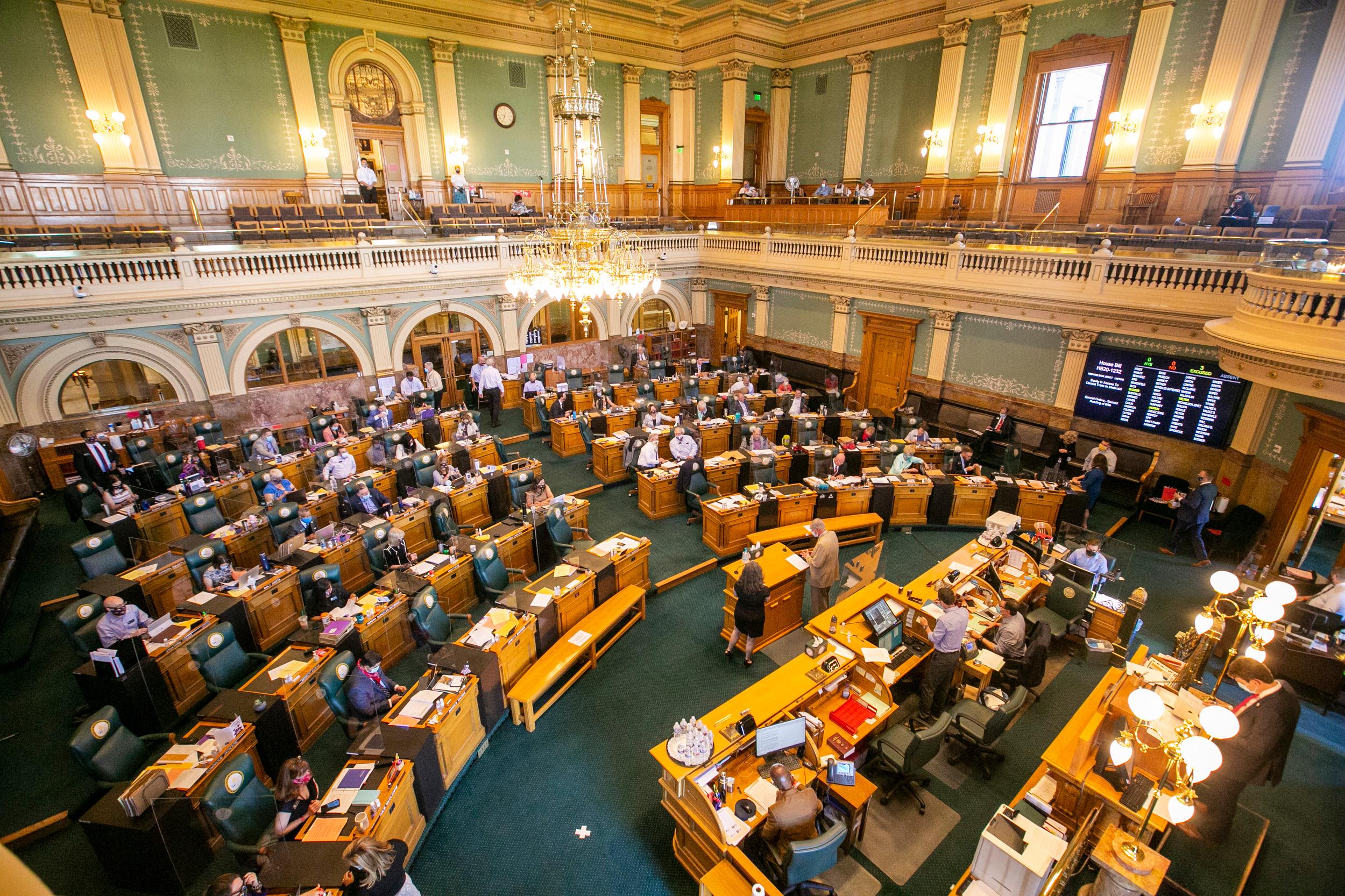
Colorado’s Democratic legislative leaders have decided to delay the annual legislative session due to the COVID-19 pandemic and the perils of trying to conduct their work in a crowded state capitol building.
The legislature is legally required to begin on January 13 and run for no more than 120 days. But Colorado’s declared state of emergency allows more flexibility within that timeline. The state supreme court ruled in the spring that lawmakers can temporarily pause their work and return later in the year. Incoming Speaker of the House Alec Garnett said he and others think that’s the safest option
According to the legislature’s Democratic leadership, lawmakers will gavel in on the 13th and only stay at the Capitol long enough to get the most urgent and necessary work done, such as swearing in new members. Then they’ll adjourn until at least mid-February.
Garnett said the goal for the break is to get to a point “that’s removed from the potential spike from Christmas and New Years and gives a little bit more time for the vaccine to circulate and the weather to warm up.”
Senate Republicans complained in a statement that, while Democrats had asked their opinion on delaying the session, they didn't get a warning before the final decision was made. Some also took to Twitter to criticizse the planned pause.
The legislature met in person for two and a half days in early December for a special session to pass a COVID-19 relief package. That session highlighted deep divides between lawmakers on issues of coronavirus safety, the effectiveness of mask-wearing, and rapid testing.
The state requires masks to be worn in most indoor settings, but it’s not enforced for lawmakers inside the Capitol. Some Republican lawmakers declined to wear masks during the session and most did not get a rapid COVID test available to them. About a third of the legislature decided to participate remotely.
“The biggest thing is how do we do things in the safest manner possible?” said Democratic Rep. Kyle Mullica, of returning to work at the Capitol. He’s an ER nurse and was the first state lawmaker to receive the coronavirus vaccine. “That’s our number one priority. We want to make sure people don’t get hurt. We don’t want to be a cause for the spread of the virus or someone getting hurt.”
Editor's Note: This story has been updated with response from legislative Republicans








